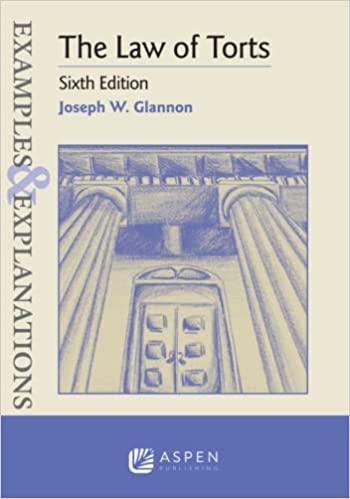Question
land law Rosy Ltd was undertaking a residential subdivision in Silverdale, Hamilton. In April 2021, Rosy entered into two sale and purchase agreements (S &
land law
Rosy Ltd was undertaking a residential subdivision in Silverdale, Hamilton. In April 2021, Rosy entered into two sale and purchase agreements (S & P Agreements) to sell lot 1 to Amy, and lot 2 to Ben. At the time the S & P Agreements were entered into, title for the lots had to still issue. The S & P Agreements include terms and conditions as below:
Clause 30: The Vendor will do its best endeavour to complete the subdivision.
Clause 31: The Purchaser could not assign the benefit of the Agreement without the vendor's consent.
Clause 32: The Purchaser could not caveat the vendor's title in any circumstances.
Clause 33: Either party could cancel the Agreement if title had not issued by 31 Mar 2022 (sunset day).
In February 2022, Amy negotiated with Ben and they signed an unconditional contract for Ben to assign his benefits of the S & P Agreement for lot 2 to Amy (nomination). Rosy Ltd did not consent to the assignment (nomination). On 1 April 2022, Rosy Ltd served both Amy and Ben a notice of cancellation to cancel the S & P Agreements relying on Clauses 31 to 33. The new titles to the lots were issued on 2 April 2022. Rosy Ltd immediately entered into an agreement to sell both lot 1 and lot 2 to Cindy, with settlement on 1 August 2022.
On 9 April 2022, Amy lodged caveats over both lot 1 and lot 2, and brought a proceeding against Rosy Ltd for breach of the S & P Agreements. Amy claimed that Rosy Ltd is obliged to sell the two lots to her. Rosy Ltd argued that the cancellation was effective, and applied for an order to remove both of the caveats.
The High Court ordered to remove the caveats on the basis that the S & P Agreements had been cancelled and that the lodging the caveats was a breach of Clause 32. Amy appealed without any delay. Rosy Ltd told Cindy about what had happened about the dispute and the proceeding and proposed Cindy to 'give up' the purchase. Cindy approached her solicitor Sam who advised her that 'there is a high possibility' that the High Court order could be reversed. Cindy decided to 'take the risk' to go ahead with the purchase, because land prices had significantly increased. The settlement was completed on 1 August and Cindy became the registered owner of the lots subject to registered mortgages of the lots to DNZ bank.
On 2 August, Amy received judgment of the Court of Appeal, which held that Rosy Ltd had failed to do its best endeavour to complete subdivision, the cancellation was ineffective, and Amy was entitled to specific performance for the purchase of lot 1.
Amy comes to you for your legal advice. She wants to know what she can do in the circumstance. In particular, she asks you: a) whether the High Court was correct in granting the order for the removal of the caveats, and why; b) Whether she can get 'her lot 1' back, and why; c) If, she is lucky enough and can get 'her lot 1' back, would 'her lot 1' be still subject to the mortgage to DNZ bank; d) If she is unable to get 'her lot 1'back, would it be a situation of 'manifest injustice' (she Googled and found this term in the Land Transfer Act 2017).
Step by Step Solution
There are 3 Steps involved in it
Step: 1

Get Instant Access to Expert-Tailored Solutions
See step-by-step solutions with expert insights and AI powered tools for academic success
Step: 2

Step: 3

Ace Your Homework with AI
Get the answers you need in no time with our AI-driven, step-by-step assistance
Get Started


